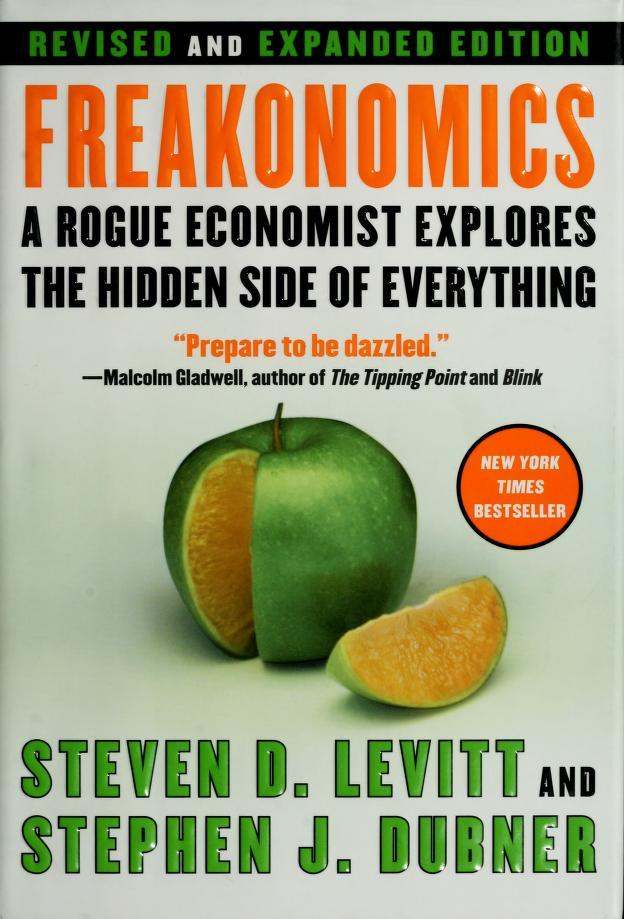Snippets about: Sociology
Scroll left and right !
The Martini Is A Gateway Drug To Mimetic Desire
"Let's say that while we're bellied up to the bar sipping our drinks, my friend tells me about a promotion he's about to get. He'll receive a $20,000 boost in salary and have a new title: managing director of something or other that sounds important. It comes with more vacation time, too.
As I smile and tell him how exciting that is, I feel some anxiety. Shouldn't I be making an extra $20,000, too? Will my friend and I still be able to plan vacations together if he gets twice as much paid time off as I do? And also, what the hell? We graduated from the same university, and I worked twice as hard as he did in school and after. Am I falling behind? Did I choose the right path in life?"
Section: 1, Chapter: 1
Book: Wanting
Author: Luke Burgis
The Future Of Desire Will Be Shaped By Mimesis
The things we will want in the future depend on three factors:
- Past desires: Cultural desires are growing more mimetic and unstable, as evidenced by rising political polarization, social media mob dynamics, market volatility, etc.
- Present choices: We face a crisis of desire. Will we scapegoat others or do the hard work of transforming relationships and systems? Will we seek quick fixes or lasting fulfillment?
- Future influences: New social inventions will be needed to channel mimetic desire in healthy directions. Previous ones like ritual scapegoating and economic competition are losing their moderating power. What will replace them?
Section: 1, Chapter: 7
Book: Wanting
Author: Luke Burgis
Connectors, Mavens, And Salesmen
The Law of the Few relies on three key types of people who are critical to social epidemics:
- Connectors are people with a special gift for bringing the world together. They have extraordinarily large social networks and are great at making friends and acquaintances. Examples include Paul Revere and the popular girl in high school who knows everyone.
- Mavens are information specialists. They accumulate knowledge and are eager to share it with others. They start word-of-mouth epidemics due to their knowledge, social skills, and ability to communicate. Examples include a friend who knows all about the latest gadgets or restaurants.
- Persuaders are charismatic people with powerful negotiation skills. They exert "soft" influence rather than direct persuasion. Examples include successful salespeople and advertisers.
Any social epidemic tips because of the involvement of Connectors, Mavens, and Persuaders. They are the ones who make things happen.
Section: 1, Chapter: 2
Book: The Tipping Point
Author: Malcolm Gladwell
How New York's Crime Epidemic Tipped
In the mid-1990s, crime in New York City plummeted rapidly and dramatically - the murder rate fell by 2/3 in 5 years. Gladwell argues this epidemic of crime reduction tipped due to a combination of small, subtle factors:
- Fixing broken windows and cleaning up graffiti - sending a signal of order
- Cracking down on fare-beating in the subways
- Rebuilding the organizational structure and management of the police
These changes in environment and context made people more likely to obey the law. The decline was too rapid to be explained by big slow variables like the economy, drug use, etc. "The Power of Context says that human beings are a lot more sensitive to their environment than they may seem."
Section: 1, Chapter: 1
Book: The Tipping Point
Author: Malcolm Gladwell
At 30% Minorities, White Flight Occurs
In the post-WW2 era, as black Americans increasingly moved into white urban neighborhoods, sociologists noticed a disturbing pattern. Once the minority population hit around 30%, most of the white population would flee within a few years - "white flight." This "tipping point" held true across different cities and eras. Civil rights activist Saul Alinsky argued that many whites would tolerate a small, stable black population, but not true integration. Tipping points can be used for exclusion as much as inclusion.
Section: 2, Chapter: 4
Book: Revenge of the Tipping Point
Author: Malcolm Gladwell
The Surprising Social Benefits Of Gossip
While gossip is often dismissed as frivolous or even toxic, social scientists recognize its vital functions. Gossip is how we:
- Teach and enforce group norms. Stories of people's admirable or shameful behavior shape our sense of right and wrong.
- Bond and build trust. Sharing insider knowledge signals intimacy and protectiveness. We only divulge sensitive news to close allies.
- Gauge our own standing. Hearing about others' struggles and triumphs helps us evaluate our own status and relationships.
- Relieve stress and feel validated. Venting to a sympathetic ear eases our burdens and helps us feel less alone in our troubles. Far from a vice, gossip serves a prosocial purpose when it stays grounded in concern and compassion rather than envy or malice.
Section: 1, Chapter: 16
Book: You're Not Listening
Author: Kate Murphy
Mertonian Norms For Truthseeking Groups
To create a truthseeking culture, Duke recommends following the Mertonian norms developed by sociologist Robert Merton:
- Communism (data belongs to the group, not individuals)
- Universalism (evaluate ideas based on merit, not source)
- Disinterestedness (be willing to accept outcomes that go against your preferred position)
- Organized Skepticism (discussion is good, but agree to be bound by logic/evidence)
These principles help overcome biases like confirmation bias, motivated reasoning, and groupthink that can derail group decision making. They create an environment where the best ideas can surface and win out.
Section: 1, Chapter: 5
Book: Thinking in Bets
Author: Annie Duke
How Farming Technologies Shape Gender Roles
Ester Boserup, a Danish economist, proposed the idea that societies that historically used the plough developed more unequal gender norms than those that practiced shifting agriculture. The theory posits that:
- Plough agriculture favors male strength because operating the plough requires upper body strength and grip strength that women on average have less of
- Plough agriculture is less compatible with childcare than shifting agriculture, making it harder for women to combine farm work and family responsibilities
- Plough agriculture is more capital-intensive, favoring men who have more access to land, tools and draft animals than women
- As a result, in societies that relied on animal-drawn ploughs, gender roles diverged and men came to dominate economic and public life while women were relegated to the domestic sphere.
Section: 3, Chapter: 7
Book: Invisible Women
Author: Caroline Criado Perez
Feelings Of Inferiority Are Subjective Interpretations
Adlerian psychology views feelings of inferiority as subjective evaluations rather than objective facts. People feel inferior based on their own interpretations of themselves in comparison to others or to their ideal selves.
The philosopher notes that his own feeling of inferiority about his height was a subjective judgment, not an actual lack of worth: "My height of 61 inches in itself was not inferior at all. It was rather that the value I attached to that height was the issue."
Section: 2, Chapter: 13
Book: The Courage to Be Disliked
Author: Ichiro Kishimi and Fumitake Koga
The Diffusion Model
Researchers have studied how new ideas and innovations spread through a population, known as the diffusion model:
- Innovators are adventurous people who eagerly try new ideas
- Early Adopters are influential, respected, careful choosers
- Early Majority are thoughtful people who accept change more quickly than average
- Late Majority are skeptical people who adopt new ideas after the majority
- Laggards are traditional, conservative people who are last to change
Geoffrey Moore noted a "chasm" between the Early Adopters and Early Majority. Epidemics only tip once you reach the Early Majority. To do that, the idea has to be translated from something specialized and difficult to understand to something accessible to the mainstream. That's the job of Connectors, Mavens, and Persuaders - to bridge the chasm.
Section: 1, Chapter: 2
Book: The Tipping Point
Author: Malcolm Gladwell
Your Closest Friends Aren't Your Most Valuable Network
In your twenties, spending all your time with the same group of friends, your "urban tribe", may feel comforting but it can hold you back. The people you know the least well, your "weak ties" are actually the most likely to provide new opportunities and experiences to help you grow.
Weak ties have novel information and connections that your close friend group doesn't. To build a diverse network, you have to be intentional about connecting with people outside your regular social circle.
Section: 1, Chapter: 2
Book: The Defining Decade
Author: Meg Jay
Teen Smoking As A Social Epidemic
Teen smoking spreads much like an epidemic disease:
- A few "carrier" teens start the trend; they tend to be high-social-status individualists that others look up to
- Smoking becomes a symbol of rebellion, sophistication and independence
- Teens overestimate how many of their peers smoke, feeling pressure to conform
- The behavior spreads rapidly and almost invisibly via peer influence
"The success of epidemics depends on the involvement of people with a set of rare social gifts. In this case, it's not sexual promiscuity that gets the epidemic going, as with AIDS. It's hyperconnectedness. It's a small number of people who are extraordinarily well connected who spread the thing."
Section: 1, Chapter: 7
Book: The Tipping Point
Author: Malcolm Gladwell
Why Are Some Countries Rich And Others Poor?
One of the biggest questions in economics is why some countries are rich and others poor. Traditional explanations focus on factors like natural resources, education levels, infrastructure, and property rights. But Levitt and Dubner argue another variable is often overlooked: trust.
They argue social trust is the hidden ingredient behind economic growth. In high-trust societies, people can conduct business and solve problems more efficiently vs. wasting time/money constantly verifying commitments. The authors cite survey data showing Scandinavian countries have some of the highest trust levels, while Latin America ranks low.
Levitt and Dubner call for more research into how to quantify and cultivate trust as an economic asset. Overall, it's an example of how "soft" social factors can shape "hard" fiscal realities.
Section: 1, Chapter: 4
Book: Super Freakonomics
Author: Steven D. Levitt , Stephen J. Dubner
The Rule Of 150: The Magic Number For Groups
There seems to be a tipping point in the size of social groups:
- Below 150 members, a group can rely on informal social norms, peer pressure and personal relationships to maintain cohesion
- Above 150, rules, hierarchy, and formal authority are needed to keep order. Things become impersonal and unwieldy.
The dynamics of a group change fundamentally when it exceeds 150 people. This number shows up again and again:
- Hunter-gatherer societies around the world have average village sizes of 148
- Offices tend to max out around 150-200 employees
- The Hutterite religious communities always split when they exceed 150
"At 150, the Hutterites believe, something happens - something indefinable but very real - that somehow changes the nature of community overnight."
By keeping groups under 150, an organization can exploit the bonds of memory and peer pressure to maximize cohesion and trust. Going over that threshold makes an epidemic vulnerable to tipping in the wrong direction.
Section: 1, Chapter: 5
Book: The Tipping Point
Author: Malcolm Gladwell
Our Power to Understand and Shape Epidemics
"Epidemics have rules. They have boundaries. They are subject to overstories - and we are the ones who create overstories. They change in size and shape when they reach a tipping point - and it is possible to know when and where those tipping points are. They are driven by a number of people, and those people can be identified. The tools necessary to control an epidemic are sitting on the table, right in front of us. We can let the unscrupulous take them. Or we can pick them up ourselves, and use them to build a better world."
Section: 3, Chapter: 9
Book: Revenge of the Tipping Point
Author: Malcolm Gladwell
Dunbar's Number: The Brain's Social Channel Capacity
According to anthropologist Robin Dunbar, the human brain can only handle about 150 close relationships at a time. As a social group grows, the number of links between members increases exponentially, not linearly. Keeping track of those relationships consumes more and more mental effort.
At some point the brain reaches its limit. Dunbar found a strong correlation between primate brain size and average social group size. For humans, that cognitive boundary seems to be 150.
"The figure of 150 seems to represent the maximum number of individuals with whom we can have a genuinely social relationship, the kind of relationship that goes with knowing who they are and how they relate to us."
By staying under Dunbar's number, an organization can tap into the brain's natural social wiring, and prevent social cohesion from breaking down.
Section: 1, Chapter: 5
Book: The Tipping Point
Author: Malcolm Gladwell
The Miami Overstory Shapes Philip Esformes
Healthcare mogul Philip Esformes ran a massive Medicare fraud scheme out of his Florida nursing homes. At his sentencing, Rabbi Sholom Lipskar argued Esformes was corrupted by moving from Chicago to Miami, saying he "lost himself" and "went down a wrong path" after arriving in Florida. Suggesting that the "overstory" - the attitudes and narratives - of Miami's culture shaped Esformes' descent into crime.
Section: 1, Chapter: 2
Book: Revenge of the Tipping Point
Author: Malcolm Gladwell
The Three Tiers Of The Casino Business
The casino industry can be divided into three distinct market segments:
- High-end luxury resorts: Upscale properties like the Bellagio and Wynn cater to an affluent clientele with lavish amenities, Michelin-starred restaurants, and designer shopping. Gambling is just one component of a complete entertainment experience.
- Mass market corporate casinos: Companies like MGM Resorts and Caesars Entertainment operate a broad portfolio of properties that appeal to a wide spectrum of tourists and convention-goers. Casinos use tiered loyalty programs to segment customers and offer personalized promotions.
- Locals market and slot parlors: These bare-bones operations cater to a working class clientele with minimal amenities beyond the gaming floor. Slot machines and video poker are the primary focus, and casino design principles create a maze-like environment to keep players glued to their games.
Section: 1, Chapter: 3
Book: On The Edge
Author: Nate Silver
The Delicate Art of Mind Reading
In Chapter 6, Gladwell explores the concept of "mind-reading" - our ability to quickly infer others' thoughts and emotions from subtle cues. He focuses on how this skill can sometimes fail, leading to tragic consequences.
Humans are generally very good at reading others' emotions and intentions: This ability relies on rapid, unconscious processing of facial expressions and body language. However, stress, time pressure, and preconceived notions can impair this ability.
Section: 1, Chapter: 6
Book: Blink
Author: Malcolm Gladwell
Dominance Dynamics Undermine Performance
Dominance hierarchies are a pervasive feature of human groups. While they can enable smooth coordination, they often stifle the upward flow of ideas and information. Subordinates self-censor in the presence of dominant leaders. What feels like cohesive teamwork may in fact be an echo chamber that amplifies blindspots. Dominance is appropriate for executing plans but counterproductive for making them.
During the 1996 Mount Everest disaster, the steep authority gradient between guides and clients suppressed vital information flow that could have averted tragedy. Clients noticed troubling signs, like deteriorating weather, but didn't feel empowered to speak up forcefully to their leaders. Guides failed to elicit input and concerns from the group. The result was critical decisions being made without the full picture, leading step-by-step to catastrophe.
Section: 1, Chapter: 3
Book: Rebel Ideas
Author: Matthew Syed
We Have The Power To Shape And Contain Epidemics
Though we often feel powerless in the face of contagious epidemics, Gladwell argues this book shows we do have agency:
- We can craft positive "overstories" that influence behavior for the better, like Madden did with opioids in some states, or Will & Grace did with attitudes toward gays
- We can identify the "superspreaders" - the Oxycontin doctors or MeToo abusers - and remove their influence
- We can be conscious of "group proportions" and work to integrate groups in ways that shape more positive outcomes
The intricate dynamics of social epidemics are not, in the end, beyond our understanding or control. We already have many of the tools. We must consciously choose to use them to build healthier communities.
Section: 3, Chapter: 9
Book: Revenge of the Tipping Point
Author: Malcolm Gladwell
How a TV Miniseries Made the Holocaust Speakable
In 1978, NBC aired the miniseries Holocaust, which followed a fictional German Jewish family through the horrors of the Nazi genocide. Though panned by many critics, the series was a national phenomenon, viewed by 120 million Americans - half the country.
Holocaust marked a crucial turning point in how Americans understood and talked about the Jewish tragedy. Before the series, the term "Holocaust" was not widely used. Most people had only a vague sense of what occurred in the concentration camps. After Holocaust aired, "Holocaust" became the universal term for the Nazi massacre of the Jews.
Section: 3, Chapter: 7
Book: Revenge of the Tipping Point
Author: Malcolm Gladwell
Listeners And Gossipers Co-Create The Rules Of Social Life
Think of gossip as the original mass medium. Long before newspapers and TV, it's how people spread information and ideas beyond their immediate circles. And like all media, it operates on a "pay to play" model. The most eager listeners gain access to the juiciest morsels. The best talkers attract the most attentive audiences. Gossip's grapevine turns private affairs into public knowledge and public events into private passions. As we whisper, eavesdrop, and pass along tales, we collectively decide what deserves discussion and judgment and what merits discretion and tact. Bit by bit, the currency of gossip establishes our social and moral economies.
Section: 1, Chapter: 16
Book: You're Not Listening
Author: Kate Murphy
TB's Vicious Cycles
Tuberculosis is so often, and in so many ways, a disease of vicious cycles: It's an illness of poverty that worsens poverty. It's an illness that worsens other illnesses—from HIV to diabetes. It's an illness of weak healthcare systems that weakens healthcare systems. It's an illness of malnutrition that worsens malnutrition. And it's an illness of the stigmatized that worsens stigmatization.
In the face of all this, it's easy to despair. TB doesn't just flow through the meandering river of injustice; TB broadens and deepens that river.
Section: 5, Chapter: 19
Book: Everything is Tuberculosis
Author: John Green
The Rule Of Reciprocity Is The Basic Currency Of Social Life
Reciprocity, or paying back what others do to you (good or bad), is a human universal found in all cultures. It allows for cooperation between individuals who are not related. The tit-for-tat strategy - being nice until provoked, but then retaliating if wronged - tends to lead to the best long-term outcomes in social interactions. Behaviors like gratitude and vengeance exist to reinforce and motivate adherence to reciprocity.
In addition to gratitude and vengeance between two interacting individuals, gossip is a mechanism that promotes reciprocity and cooperation on a larger societal scale. Language may have evolved primarily to facilitate gossip - allowing people to keep track of who is doing what to whom, so cheaters can be punished and cooperators rewarded, even by those not directly involved. Gossip extends reciprocity beyond direct dyads.
Section: 1, Chapter: 3
Book: The Happiness Hypothesis
Author: Jonathan Haidt
The Strength of Weak Ties Comes From Interacting Differently
According to sociologist Mark Granovetter, weak ties provide value in two key ways:
- Weak ties expose you to new information and opportunities. They have connections and knowledge that overlap less with what you already know.
- Interacting with weak ties forces you to communicate from a place of difference. You can't rely on the unspoken assumptions and "restricted speech" you use with your core friend group. You have to engage in "elaborated speech", explaining yourself more fully. This helps you grow.
Section: 1, Chapter: 2
Book: The Defining Decade
Author: Meg Jay
Small Number Of "Super-Prescribers" Write Huge Share Of Opioid Rxs
The opioid epidemic was fueled by a tiny minority of doctors who prescribed huge volumes of the drugs, responding to pharma company marketing. During the height of the crisis, analysis shows that:
- The top 1% of prescribers wrote 49% of opioid prescriptions
- Some wrote over 1,000 times more Rxs than the average doctor
These "super-prescribers" - numbering just a few thousand nationwide - enabled widespread misuse, while most doctors prescribed cautiously. Gladwell argues any successful response to such crises requires identifying and intervening with the most extreme "superspreaders."
Section: 3, Chapter: 9
Book: Revenge of the Tipping Point
Author: Malcolm Gladwell
20% Of Infections May Cause 80% Of Spread
Growing evidence suggests that COVID and other infectious diseases follow the "Pareto principle" - that roughly 20% of cases may cause 80% of transmission. So-called "superspreaders" seem to be significantly more contagious than the average infected person, sparking large clusters. This may be due to:
- Biological factors like higher viral load
- Behavioral factors like interacting with many people
- Number and type of contacts
- Environment and setting
This highly skewed distribution means that finding and containing superspreaders early is key to controlling outbreaks.
Section: 2, Chapter: 6
Book: Revenge of the Tipping Point
Author: Malcolm Gladwell
Broken Windows Theory: The Power Of Context
The Broken Windows theory argues that crime is the inevitable result of disorder:
- If a window is broken and left unrepaired, people conclude that no one cares and no one is in charge
- This sends a signal that anything goes and the sense of anarchy spreads
- Relatively minor problems like graffiti, public disorder, and panhandling are "small cracks" that invite more serious crimes
"The impetus to engage in a certain kind of behavior does not come from a certain kind of person but from a feature of the environment."
An epidemic can be tipped by tiny changes in context, in the same way that New York's crime epidemic tipped when the police began fixing "broken windows" like graffiti and fare-beating.
Section: 1, Chapter: 4
Book: The Tipping Point
Author: Malcolm Gladwell
Caroline Sacks Chooses Between an Elite and Accessible College
Caroline Sacks, a gifted student passionate about science, had to choose between going to Brown University or University of Maryland. Despite loving science, Caroline struggled in Brown's demanding science program, getting discouraged and switching majors.
In going to Brown, Caroline fell victim to a common error - what Gladwell calls "elite institution cognitive disorder." In choosing the more elite school, she actually put herself at a disadvantage by surrounding herself with more competitive peers and making herself feel inadequate. She would have likely had a more successful science career if she went to Maryland.
This illustrates the concept of "relative deprivation" - how we compare ourselves to our immediate peers. Our sense of self-worth and motivation depends on these local comparisons, not our global ranking.
Section: 1, Chapter: 3
Book: David and Goliath
Author: Malcolm Gladwell
The Purpose Of Interpersonal Relationships Is Community Feeling
If all problems are interpersonal problems, as Adler asserts, then what is the ideal state of interpersonal relationships? The philosopher states Adler's answer is "community feeling."
Community feeling means sensing one's "belongingness" and contribution to the community. It stems from having concern for others beyond oneself, and from cooperating on an equal basis. The philosopher elaborates:
Section: 4, Chapter: 34
Book: The Courage to Be Disliked
Author: Ichiro Kishimi and Fumitake Koga
Rosabeth Kanter's Radical Idea
In the 1970s, when Rosabeth Kanter was asked to investigate why a sales force's newly hired women were struggling, she had a courageous insight - being the "only one" in a group is a major disadvantage. Kanter called this phenomenon "tokenism."
Kanter realized that women were held back not because of their individual abilities, but because vastly outnumbered in a male-dominated workplace. As "tokens," women faced exaggerated scrutiny, pressure to represent all women, and exclusion from the real team.
Her radical solution was that companies should ensure women make up at least 35-40% of a group - what she called the "critical mass." Only when women's representation reached this "magic third" would they be liberated from the disadvantages of tokenism and able to thrive.
Section: 2, Chapter: 4
Book: Revenge of the Tipping Point
Author: Malcolm Gladwell
Social Thirst Makes People Signal Their Identity And Values More
Before social media, overt signaling of one's identity, values and group affiliations was most common among teenagers - think goths, jocks, stoners, etc. But in today's fractured world, more adults engage in such social signaling, online and off. People advertise their diets, political leanings, and cultural tastes. While this allows quick assessment of others, it can discourage real listening. We may assume that someone flaunting their veganism or gun rights bumper sticker can be summed up by that single thing. But there are always more complex motives, experiences and dimensions to people when we get curious.
Section: 1, Chapter: 4
Book: You're Not Listening
Author: Kate Murphy
Why Cities Make Us Lonely
Despite most modern people living in dense urban areas surrounded by other humans, nearly half of Americans report feeling lonely in what is being called a "loneliness epidemic." This is likely because cities violate our evolutionary preference for living in groups of around 150 people (Dunbar's Number) - the optimal community size that allowed us to thrive for most of human history.
But today a single city block can have thousands of people; human brains uneasy with population density that's too high. A lack of connection to people and place in cities breeds unhappiness
Rural, nature-connected people often report more life satisfaction In contrast, time in nature allows us to reset and experience the kind of intimate connections, sense of belonging, and timeless rhythms we evolved with.
Section: 1, Chapter: 8
Book: The Comfort Crisis
Author: Michael Easter
Scapegoating - Humanity's Primal Response To Mimetic Crises
When societies face a mimetic crisis - a breakdown of order as people become hostile rivals - they instinctively resort to scapegoating. A person, often an outsider or eccentric, gets blamed for the disorder. The community unites against the scapegoat, projecting their anger on him.
Scapegoats are chosen by stigma, not guilt. The disabled, foreigners, eccentrics, and elites are frequent targets. The scapegoat mechanism:
- Channels all-against-all violence into all-against-one violence
- Unites people against a common enemy
- Absolves the community of responsibility
- Reconciles people...until disorder builds again
Scapegoating has been a safety valve for societies throughout history.
Section: 1, Chapter: 4
Book: Wanting
Author: Luke Burgis
Taking Advantage Of Context
Three ways to apply the Power of Context to spark epidemics:
- Size matters: Keep groups under 150 to maximize social cohesion and peer pressure
- Proximity and space matter: Design physical spaces to maximize interaction and random connections between people (Steve Jobs famously did this at Pixar)
- Disruptive context matters: If you want to shift group behavior, disrupt their normal environment (like cleaning graffiti to reduce crime)
"The key to getting people to change their behavior, in other words, to care about their neighbor in distress, sometimes lies with the smallest details of their immediate situation."
Instead of trying to change people's character or choices, focus on tweaking the context and environment around them in subtle but powerful ways. The results can be dramatic.
Section: 1, Chapter: 5
Book: The Tipping Point
Author: Malcolm Gladwell
We Unconsciously Categorize People Into "Us" Vs. "Them"
Chapter 6 examines how our unconscious propensity to categorize people into "in-groups" and "out-groups" shapes our perceptions and behaviors. We automatically and unconsciously favor those we see as part of "us" and are more suspicious of "them."
Even arbitrary distinctions, like randomly assigning people to a "red" or "blue" team, elicits in-group favoritism. Numerous studies show how quickly and easily group identities form and lead to distorted perceptions, biased judgments, double-standards, and discrimination - often without any awareness it is happening.
Understanding this unconscious dynamic is key to navigating a diverse social world.
Section: 2, Chapter: 6
Book: Subliminal
Author: Leonard Mlodinow
The Hard Problem Of Social Science
Even when technical issues like p-hacking are addressed, social science faces a "Hard Problem" that stems from the radical uncertainty of the social world:
- Equifinality: Many models can fit the same data, so drawing firm conclusions is difficult.
- Reflexivity: Studying social phenomena can alter their dynamics, invalidating models.
- Causal density: Outcomes arise from complex, ever-shifting interactions, not isolatable variables.
- Knightian uncertainty: The range of possible futures is often unknowable, rendering precise probability estimates meaningless.
Section: 1, Chapter: 11
Book: Fluke
Author: Brian Klaas
Social Media Supercharges Status-Seeking and Transforms "Status Emotions"
Our drive for social status evolved when we lived in small hunter-gatherer bands. There were tight limits on how many people we could influence and what types of status we could achieve.
Social media removes those limits. This has transformed the nature of pride and shame. We can advertise a prideful moment far and wide - but if our boast crosses a line, the shame of cancellation is equally amplified.
When posting, aim for authentic pride (celebrating a genuine achievement) vs hubristic pride (boasting to look better than others).
Section: 1, Chapter: 7
Book: Scarcity Brain
Author: Michael Easter
Celebristan vs Freshmanistan - The Two Worlds Of Mimetic Desire
There are two kinds of models that affect our desires differently:
- People in Celebristan are models separated from us by time, space, money or status. There's little chance of directly competing with them (e.g. celebrities, the ultra-wealthy, the dead). We imitate them openly as their desires don't threaten ours.
- People in Freshmanistan are models in our immediate social world with whom we can compete directly (e.g. classmates, colleagues, neighbors). Rivalry is common as even minor differences get magnified. We have to secretly wonder at these models as openly imitating them would be embarrassing. In today's world of social media and diminished hierarchies, most of us live in Freshmanistan, vulnerable to the distortions mimetic desire causes there.
Section: 1, Chapter: 2
Book: Wanting
Author: Luke Burgis
"It's Not the Media Pushing This Button to Get That Effect"
Scholar Larry Gross argues that television's impact comes not from overt messaging but from the assumptions baked into entertainment:
"It's not the media pushing this button to get that effect. It's the media creating the cultural consciousness about how the world works... and what the rules are."
Gross found that heavy TV viewership narrowed the gap between liberals and conservatives on hot-button social issues. Exposure to the same set of stories week after week, year after year "brings them together."
Gross says, "I always like to quote this line from a Scottish writer, Andrew Fletcher, 'If I can write the songs of a nation, I don't care who writes their laws.'"
Section: 3, Chapter: 7
Book: Revenge of the Tipping Point
Author: Malcolm Gladwell
Small-Area Variation Beyond Medicine
"Small-area variation has subsequently become something of an obsession for medical researchers. Books are written about it. Scholars spend their days studying it. But what's fascinating is how the same inexplicable patterns of variation turn up outside the world of medical care."
Section: 1, Chapter: 1
Book: Revenge of the Tipping Point
Author: Malcolm Gladwell
The Unconscious Roots Of Human Social Behavior
Chapter 4 explores how unconscious processes shape our social interactions and relationships. Many of our social behaviors and emotional responses occur automatically, without conscious thought. This includes nonverbal communication, emotional contagion, and our tendency to categorize people into in-groups and out-groups.
The need for social connection and belonging is a fundamental human drive. Social pain, like rejection or exclusion, activates similar brain regions as physical pain. The unconscious mind enables the complex social coordination and cooperation that has allowed human civilization to flourish.
Section: 1, Chapter: 4
Book: Subliminal
Author: Leonard Mlodinow
How Arbitrary Timekeeping Shapes Modern Life
Our lives are regulated by timekeeping systems that are the product of chance historical developments, not neutral, objective features of the natural world:
- The 7-day week has no astronomical basis, but derives from ancient Babylon, the Bible, and the Romans happening to see 7 celestial bodies.
- Month lengths and the irregular placement of leap days are a kludgy attempt to reconcile lunar and solar cycles.
- The start and length of years and eras vary across societies, shaped by cultural and religious traditions.
Yet these arbitrary constructs dictate the rhythms of our lives, from work schedules to holiday celebrations to financial cycles. Recognizing the contingent roots of our shared temporal framework can highlight how much of what we take for granted as fixed or inevitable is the result of happenstance and ancient choices, not immutable law.
Section: 1, Chapter: 10
Book: Fluke
Author: Brian Klaas
Our Drive For Social Status Is Rooted In Evolution
Humans are wired to vigilantly track our social status because historically, more influence meant better odds of survival and reproduction. Higher-status individuals had:
- Access to more resources and mates
- A greater ability to win conflicts
- Power to make others do unpleasant tasks
- More trust and cooperation from the group
Status considerations influence our behavior more than we realize. For many, perceived social rank matters more than money, health or family obligations. Our craving for importance is a key driver of violence, risk-taking, overwork, and conspicuous consumption.
Section: 1, Chapter: 7
Book: Scarcity Brain
Author: Michael Easter
The Biomedical Vs. Social Understanding Of Disease
We can understand the history of tuberculosis as a story of competing paradigms: These days, we primarily see tuberculosis through a biomedical lens—as an infection caused by a bacterium and cured by drugs designed to kill or otherwise inhibit that bacterium. Others view TB through a religious paradigm or a hereditary one or a sociological lens, as an illness caused by poverty and marginalization.
The biomedical paradigm has become so powerful in my imagination that it's easy to forget how inadequate mere medicine can be. Yes, illness is a breakdown, failure, or invasion of the body treated by medical professionals with drugs, surgeries, and other interventions. But it is also a breakdown and failure of our social order, an invasion of injustice. The "social determinants of health" cannot be viewed independently of the "healthcare system," because they are essential facets of healthcare.
Section: 6, Chapter: 23
Book: Everything is Tuberculosis
Author: John Green
Goals Are The Product Of Our Mimetic Systems
"Goals are the product of our mimetic systems, not our sovereign choices. From the standpoint of desire, our goals are the product of our systems. We can't want something that is outside the system of desire we occupy.
The obsession with goal setting is misguided, even counterproductive. Setting goals isn't bad. But when the focus is on how to set goals rather than how to choose them in the first place, goals can easily turn into instruments of self-flagellation.
Most people aren't fully responsible for choosing their own goals. People pursue the goals that are on offer to them in their system of desire. Goals are often chosen for us, by models. And that means the goalposts are always moving."
Section: 1, Chapter: 5
Book: Wanting
Author: Luke Burgis
The Big Fish-Little Pond Effect
The Big Fish-Little Pond Effect refers to the fact that we form our self-concept not in absolute terms, but relative to our immediate peer group. In school, this means our self-image is shaped by how we rank compared to our classmates, not how we rank in ability nationally.
So a student with above-average intelligence can end up with a poor academic self-concept if they are placed in a gifted program where they are below-average compared to their peers. Meanwhile, a student of equal ability in a regular program will have a much more positive self-image.
This has major implications for academic effort, aspirations and career choice. Students are more likely to persevere in fields where their relative standing is high. Being a Big Fish in a Little Pond is often preferable to being a Little Fish in a Big Pond.
Section: 1, Chapter: 3
Book: David and Goliath
Author: Malcolm Gladwell
The Perils of a Monoculture
The affluent town of Poplar Grove prided itself on being the perfect place to raise successful kids. But it created a "monoculture" where nearly all students were pressured to fit the same narrow mold of achievement in academics, sports, and college admissions.
Diversity is the natural state of healthy systems. Monocultures only emerge when something upsets the normal order, sanding down differences. While Poplar Grove parents saw their town's uniformity as a feature, it left the community brittle and vulnerable, like cheetahs whose lack of genetic diversity made them susceptible to infectious disease.
As a rash of suicides devastated the town, residents realized too late the cost of engineering a world with no room for kids to be different. Epidemics love monocultures.
Section: 1, Chapter: 3
Book: Revenge of the Tipping Point
Author: Malcolm Gladwell
Two Principles Of Epidemic Transmission
For an idea or product to tip into an epidemic, two things must happen:
- It must be contagious, spreading from person to person
- The idea itself must be "sticky" enough to stay in people's minds and compel them to action.
"Stickiness means that a message makes an impact. You can't get it out of your head. It sticks in your memory."
The two work together - a contagious idea will spread quicker if it's also sticky. But both factors must be present for an epidemic to take hold. Making a message contagious isn't enough on its own.
Section: 1, Chapter: 3
Book: The Tipping Point
Author: Malcolm Gladwell
Books about Sociology
Psychology
Personal Development
Sociology
Leadership
Quiet Book Summary
Susan Cain
"Quiet" explores how the Extrovert Ideal became the cultural norm in the 20th century, explores the often undervalued strengths of introverts, and argues that we need a greater balance of both personality types to thrive in work, relationships, and society as a whole.
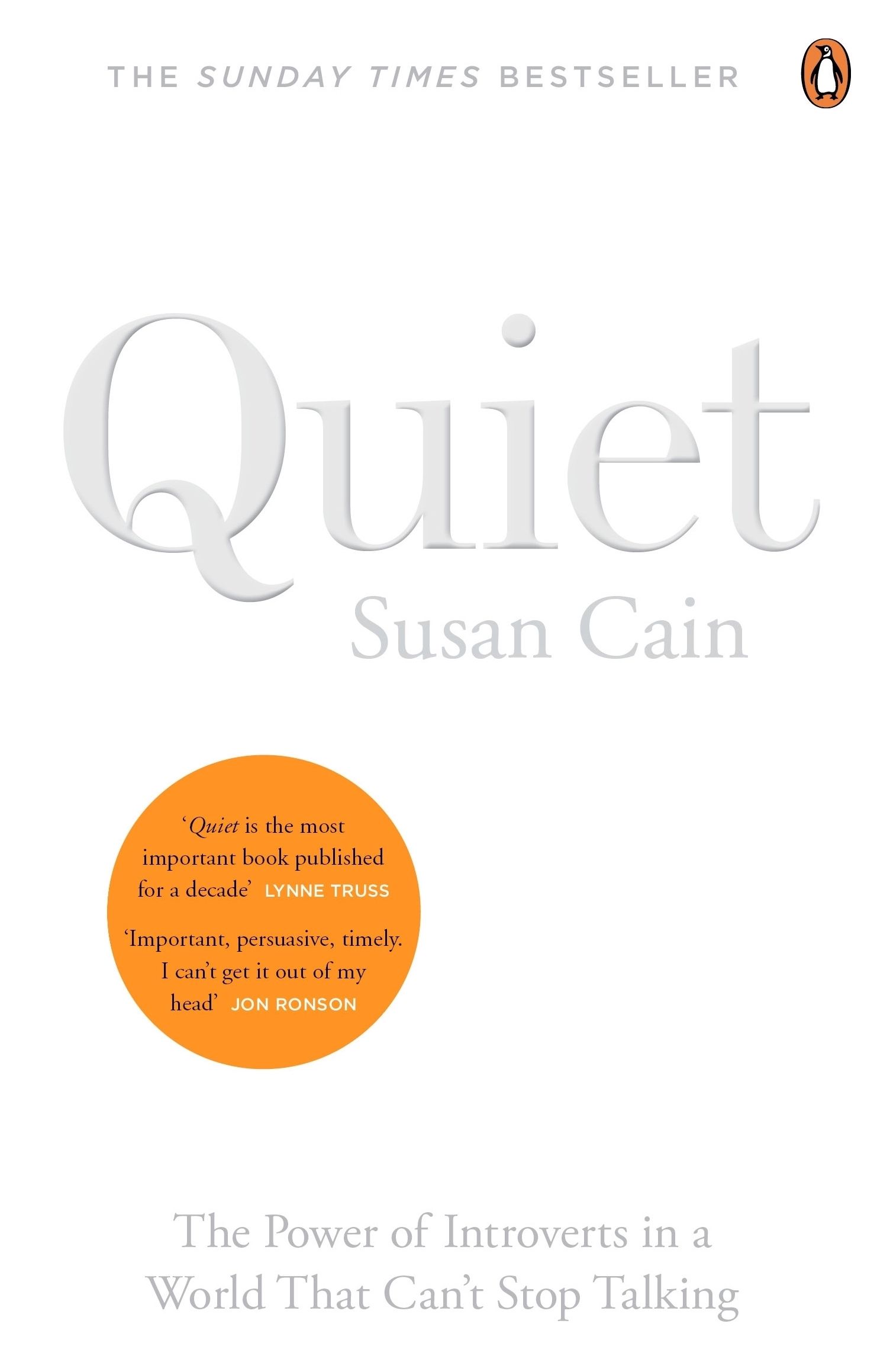
Psychology
Performance
Personal Development
Outliers Book Summary
Malcolm Gladwell
Outliers looks into the lives of exceptional individuals, uncovering the often-overlooked factors that contribute to their success. It challenges the notion of the "self-made" individual, highlighting the crucial role of opportunity, cultural legacies, and hidden advantages in shaping the path to achievement.
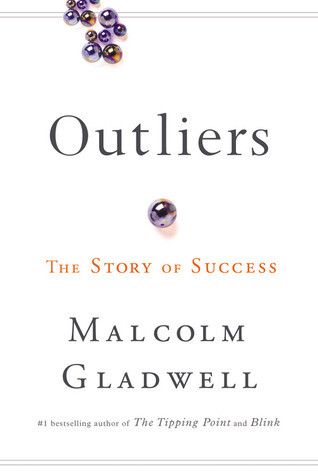
Psychology
Business
Sociology
David and Goliath Book Summary
Malcolm Gladwell
In David and Goliath, Malcolm Gladwell challenges our assumptions about power, advantage, and success, showing how underdogs can triumph by turning their weaknesses into strengths and exploiting the hidden vulnerabilities of the powerful.
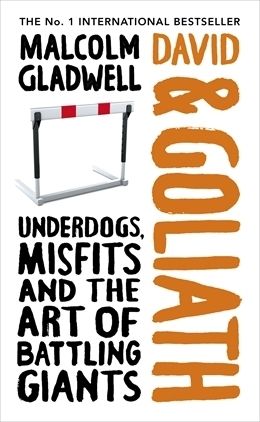
Sociology
History
Humanity
21 Lessons for the 21st Century Book Summary
Yuval Noah Harari
In "21 Lessons for the 21st Century", Yuval Noah Harari explores the most pressing challenges and opportunities of our time, offering insights on how to navigate a rapidly changing world shaped by technological disruption, political upheaval, and existential uncertainty.
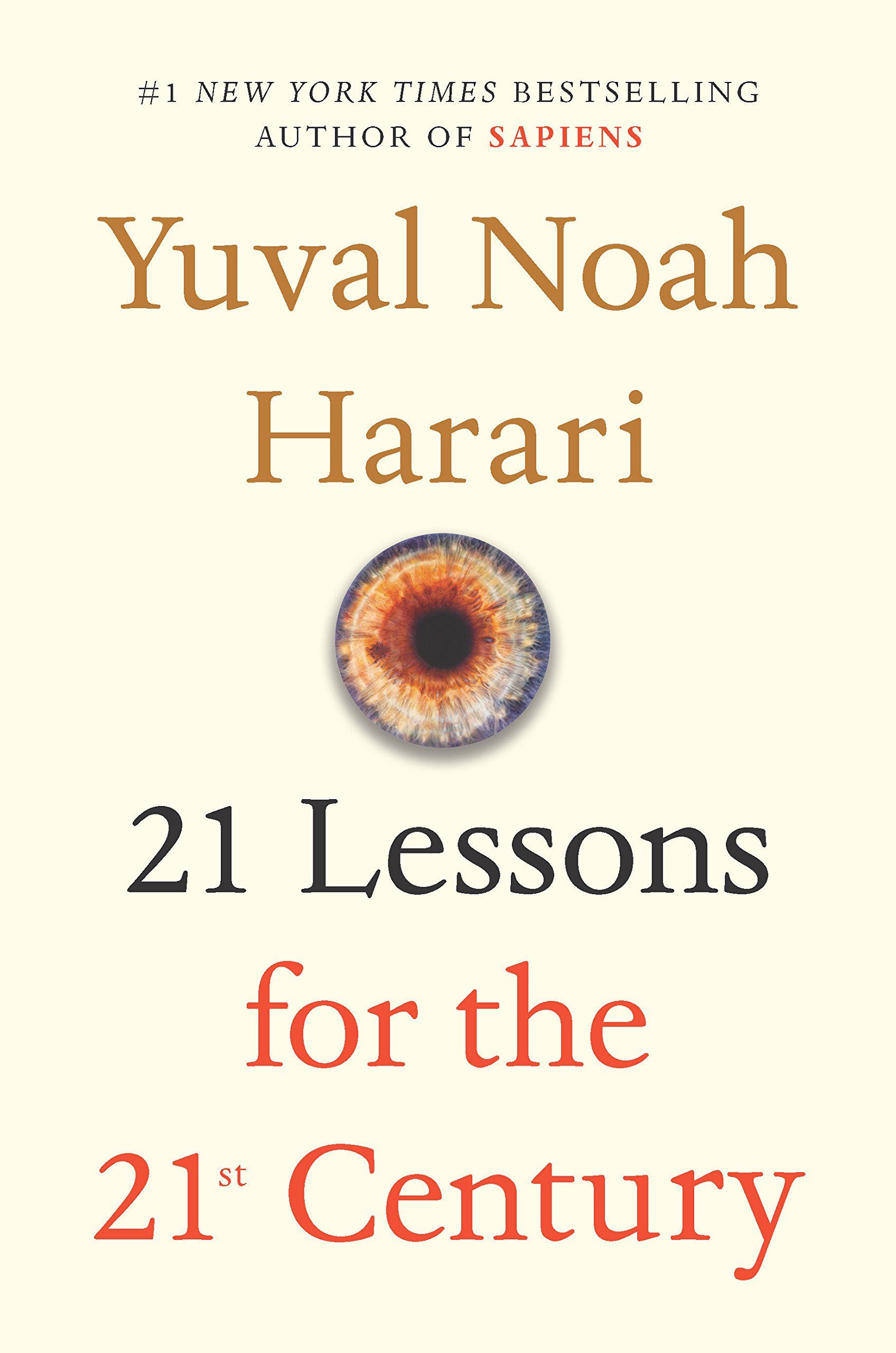
Psychology
Communication
Sociology
Talking to Strangers Book Summary
Malcolm Gladwell
In "Talking to Strangers," Malcolm Gladwell argues that our natural instincts are ill-suited for a world of frequent stranger interactions. Through case studies and research, he reveals how misguided assumptions lead to disastrous misunderstandings and offers insights on more thoughtful engagement.
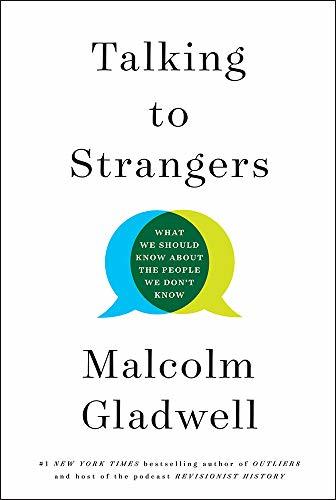
Misbehaving Book Summary
Richard Thaler
Richard Thaler chronicles the emergence of behavioral economics, challenging traditional economic assumptions about economics, and revolutionizing our understanding of decision-making. Thaler demonstrates the power of behavioral insights to improve people's lives while shedding light on the profoundly human factors that shape our choices.
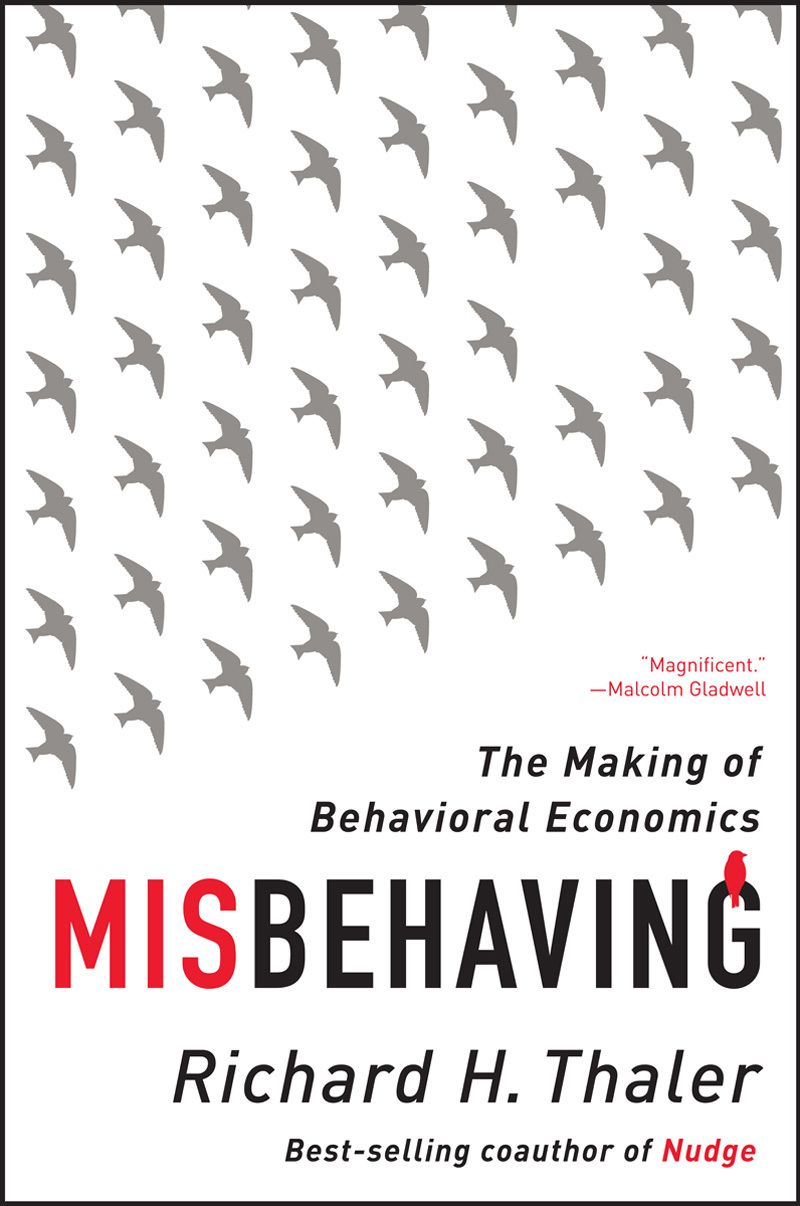
Psychology
Sociology
Economics
Incentives
Super Freakonomics Book Summary
Steven D. Levitt , Stephen J. Dubner
In Superfreakonomics, Levitt and Dubner challenge conventional wisdom on topics ranging from prostitution to terrorism to global warming, using data and economic principles to uncover surprising insights and challenge readers to think like a Freak.
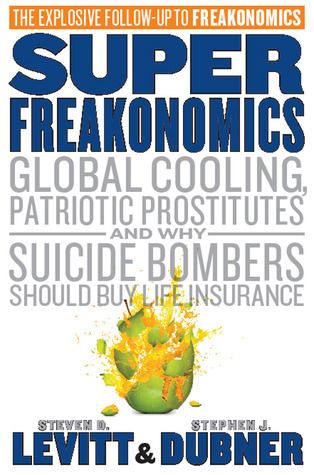
Sociology
Psychology
Personal Development
Human Behavior
Wanting Book Summary
Luke Burgis
In "Wanting," Luke Burgis draws on the powerful insights of French polymath René Girard to explore how mimetic desire - our tendency to unconsciously imitate the desires of others - shapes our lives, and provides practical strategies to escape toxic rivalries, find fulfilling desires, and become authentic leaders in an age of runaway mimesis.
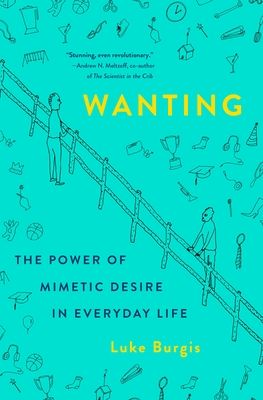
Sociology
Culture
Psychology
Technology
Society
Superbloom Book Summary
Nicholas Carr
With rich psychological insights and vivid examples drawn from history and science, Superbloom provides both a panoramic view of how media shapes society and an intimate examination of the fate of the self in a time of radical dislocation. It may be too late to change the system, Carr counsels, but it’s not too late to change ourselves.

Futurism
Technology
Humanity
Society
Homo Deus Book Summary
Yuval Noah Harari
Homo Deus explores the future of humanity in a world where the old challenges of famine, plague, and war have been largely conquered, and new godlike technologies of artificial intelligence and bioengineering are on the horizon, forcing us to confront fundamental questions about the nature of consciousness, free will, and what it means to be human in an age of algorithms.
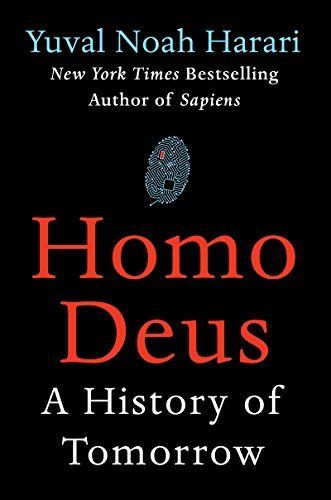
Sociology
Psychology
Science
Revenge of the Tipping Point Book Summary
Malcolm Gladwell
In "Revenge of the Tipping Point," Malcolm Gladwell argues that social epidemics are not random or mysterious, but follow predictable rules and can be shaped by the power of influential individuals, the contagious narratives that frame our world, and the delicate balance of group dynamics.
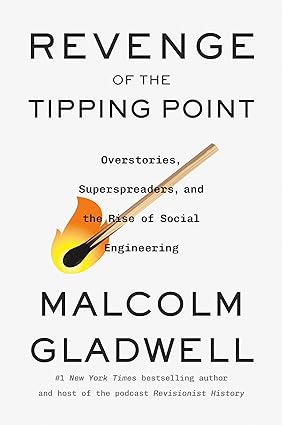
Psychology
Sociology
Thinking
Randomness
Fluke Book Summary
Brian Klaas
In "Fluke," Brian Klaas argues that chance, chaos, and the interconnectedness of all things play a far greater role in shaping our lives and the world than we often acknowledge, and that embracing this insight can lead to a more meaningful and empowered existence.
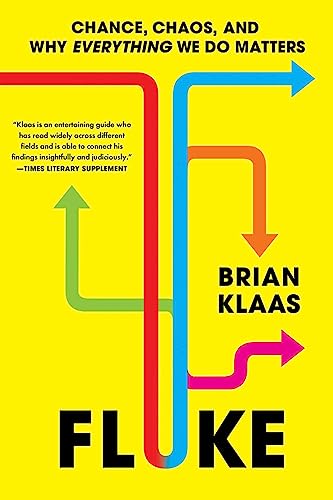
Psychology
Heuristics
Sociology
Human Behavior
Blink Book Summary
Malcolm Gladwell
"Blink" unveils the hidden power of our rapid, unconscious judgments, revealing how these split-second decisions can be remarkably insightful or dangerously flawed, and offers strategies to harness this 'thinking without thinking' for better decision-making in our personal and professional lives.
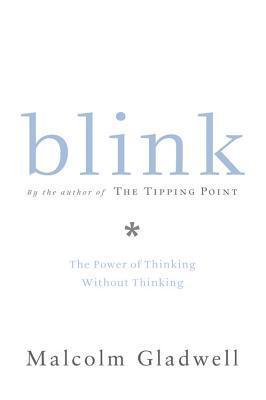
Society
Feminism
Technology
Invisible Women Book Summary
Caroline Criado Perez
Invisible Women exposes the gender data gap that underlies our male-default world, revealing the hidden ways in which the failure to collect data on women's lives leads to bias, discrimination, and disadvantage in everything from healthcare to the workplace to public policy - and offers a roadmap for closing this gap to build a more equitable future for all.
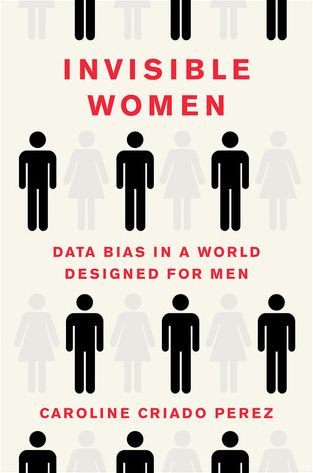
Psychology
Personal Development
Sociology
Economics
The Tipping Point Book Summary
Malcolm Gladwell
The Tipping Point reveals the hidden forces that cause social epidemics - from fashion trends to crime waves - to spread like viruses, and shows how to start and control positive epidemics of our own.
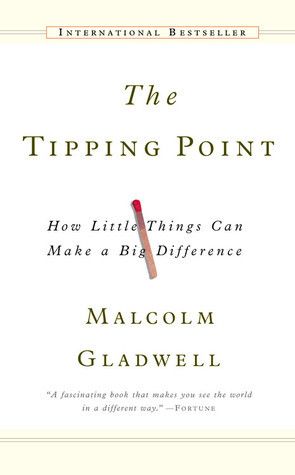
Psychology
Sociology
Economics
Freakonomics Book Summary
Steven D. Levitt, Stephen J. Dubner
Freakonomics is a rogue economist's exploration of the hidden side of everything, from cheating teachers and bizarre baby names to self-dealing realtors and crack-selling mama's boys, teaching you to question the world with data, dig deeper than conventional wisdom, and discern how people get what they want.
